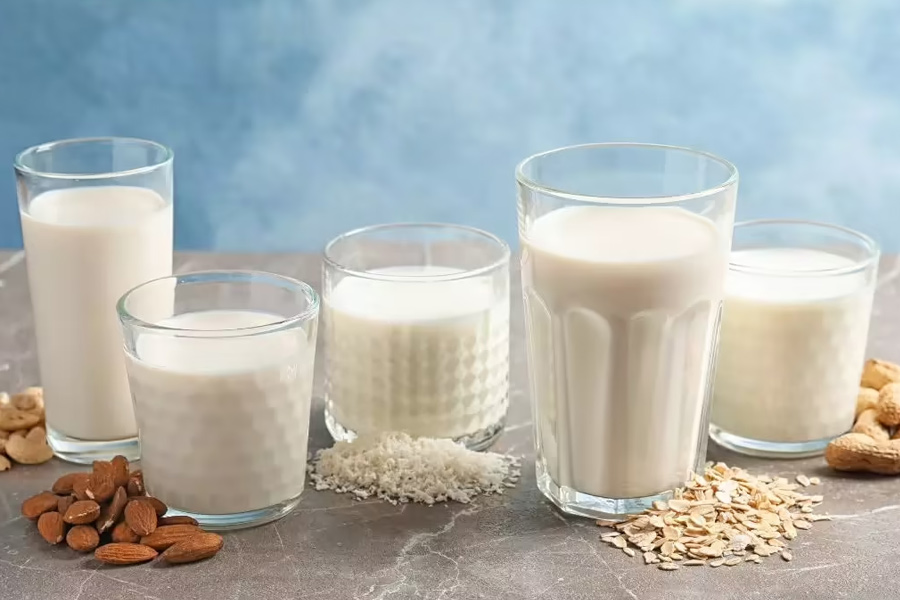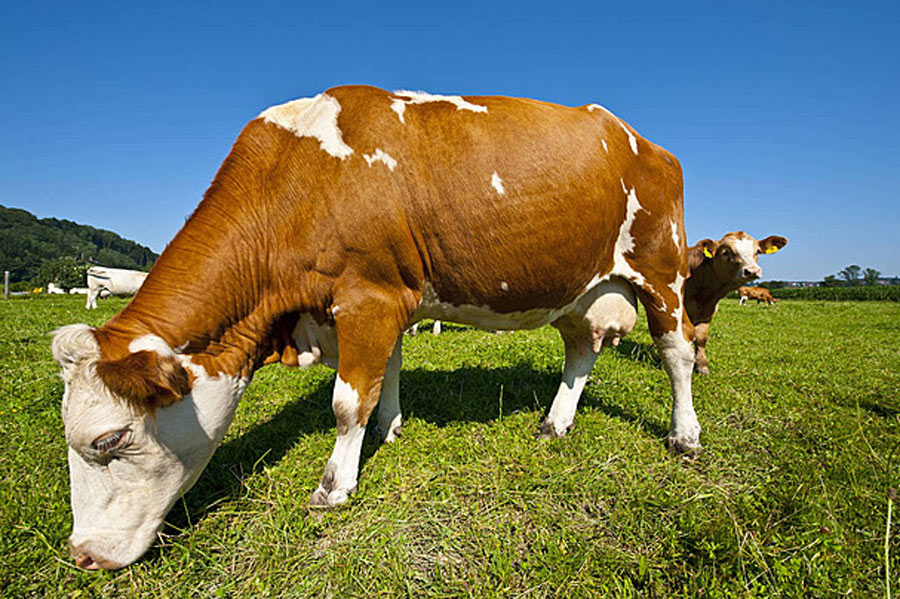
Nothing is more comforting for many families than a glass of fresh cow’s milk. From childhood, we’re told milk is good for bones, growth, and overall health. But did you know there are actually two main types of cow’s milk? A1 and A2 milk. This difference might sound small, but it can make a big impact on how your body feels after drinking milk. Let’s explore the story of A1 vs A2 milk, and why people are talking about the milk from “Western” and “Desi” cows.
Table of Content:-
Where Does Each Type of Milk Come From?![difference in milks 3 - 2025-06-05T164442.593]()
The type of cow determines the type of milk:
- Western cows like Holstein, Friesian, and Jersey are common in Europe, America, and large dairy farms. They mostly produce A1 milk.
- Desi cows such as Gir, Sahiwal, and Red Sindhi are native to India. They naturally produce A2 milk.
Pratiksha Kadam, Chief Dietitian at Kokilaben Dhirubhai Ambani Hospital, Navi Mumbai, explains, “Some native Indian cattle such as Gir, Sahiwal, and Red Sindhi, are noted for naturally producing A2 milk. These breeds have developed in relation to the Indian environment, climate, and food systems.”
ALSO READ: From Almonds to Idli: Expert Shares Delicious Ways to Nurture Your Gut on World Digestive Health Day
What’s the Difference Between A1 and A2 Milk?![desi cow milk 2 - 2025-06-05T164444.297]()
Milk contains a protein called beta-casein, which comes in two forms: A1 and A2. The only difference between them is a single amino acid in the protein chain. But this tiny change affects how your body digests the milk.
- A1 milk contains A1 beta-casein. When you digest it, your body creates a substance called beta-casomorphin-7 (BCM-7).
- A2 milk contains only A2 beta-casein. It does not create BCM-7 during digestion.
How Does Your Body React to A1 and A2 Milk?![A1 and A2 Milk 1 - 2025-06-05T164440.924]()
The biggest debate is about BCM-7, which is produced when you digest A1 milk. Some people say BCM-7 can irritate the gut and cause inflammation, especially in those who are sensitive. Pratiksha Kadam says, “The most controversial aspect of A1 milk is the BCM-7 contained within it, which some claim may have an irritable and inflammatory effect on certain people.”
People who are sensitive to A1 milk may notice:
- Stomach cramps
- Diarrhea
- Symptoms similar to irritable bowel syndrome (IBS)
- Skin problems
- Extra mucus
On the other hand, A2 milk is often better tolerated, especially by those who have trouble with regular milk. “A2 milk, specifically from Desi cows, is gentler and marks a return to more traditional foods for Indian digestive systems that are adapted to it,” says Pratiksha Kadam. Plus, Desi cow milk often has more nutrients, healthier fats, and is easier for many people to digest.
Should You Switch to A2 Milk?
If you often feel bloated, gassy, or uncomfortable after drinking milk, your body might be telling you something. Pratiksha Kadam suggests, “If a person feels discomfort with normal milk but better tolerates A2, then that serves as a guiding clue.”
For most people in India, A2 milk from Desi cows matches the traditional diet and may be healthier for long-term gut health. But remember, everyone’s body is different. Some people can drink any milk without trouble, while others need to be careful.
ALSO READ: Showering After Eating Watermelon: Expert Reacts To Myth vs Reality on Digestive Health
Conclusion
A1 and A2 milk look the same, but your body might react differently to each. If you have problems with regular milk, try switching to A2 milk from Desi cows and see if you feel better. For many, it’s a simple change that can improve digestion and overall health. As Pratiksha Kadam sums up, “For most people, especially in India, A2 milk sourced from Desi cows is in closer alignment with the traditional diet and the intestines of people and is healthier for long-term health.”
Also watch this video
How we keep this article up to date:
We work with experts and keep a close eye on the latest in health and wellness. Whenever there is a new research or helpful information, we update our articles with accurate and useful advice.
Current Version


